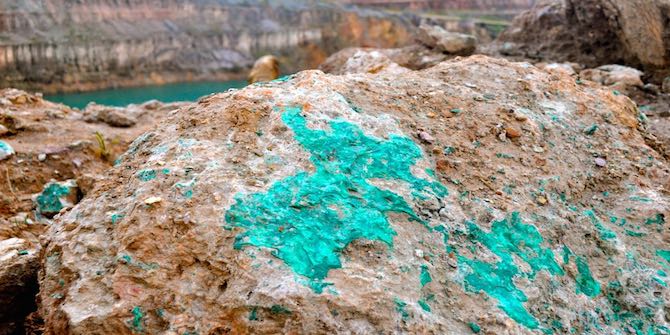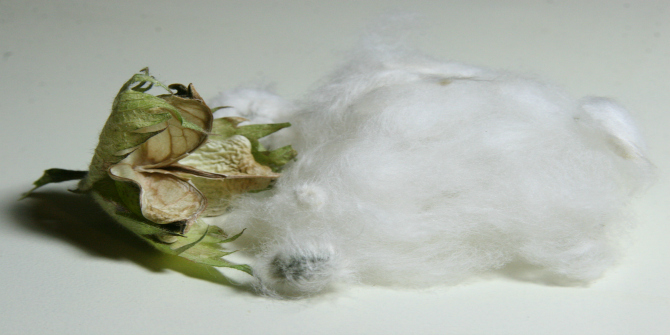Farah M. Mohamed says that high charcoal exports to the Gulf States are steering Somalia towards an environmental calamity.
While the world has been debating whether or not the Somali arms embargo should be lifted, Somalia has been facing a little known, but hugely challenging, environmental disaster. Since the collapse of the central government in 1991, Somalia has been a haven for many environmentally destructive illegal activities such as nuclear and toxic waste dumping, over-fishing and illegal fishing by international fishing enterprises, and the rapacious importation of Somali charcoal by the Gulf States. While all these activities have clearly impacted Somalia’s environment, the most damaging has been the Somali charcoal market, which is rapidly deforesting the country and wreaking havoc on one of the country’s most precious natural resources. Because of massive deforestation, the Somali ecosystem has been decimated and it will take hundreds of years to reverse the current situation.

A 2000 case[i] study shows that total charcoal production was estimated to be 112,000 metric tons. In 2005, the charcoal production increased to an alarming 150,000 metric tons and production has increased more than five-fold since then. Only 20% of the charcoal is for domestic use, while approximately 80% is exported to Saudi Arabia, the United Arab Emirates (UAE), Kuwait, Qatar, Bahrain, Oman and Yemen. By far the largest importer of Somali charcoal is Saudi Arabia, bringing in over 80% of all of Somalia’s exported charcoal. Saudi Arabia uses Somali charcoal primarily as a luxury item and it is used for shisha pipes (hookah), cooking, particularly grilling, in upscale restaurants and homes, as camping firewood, and as a supplementary winter heating source.
The main trees targeted for charcoal production are acacias, known in Somalia as “qudhac” or “galool”. Most of these trees were hundreds of years old and, as such, are irreplaceable, at least for the foreseeable future. These trees have been critical to the survival of Somali nomads, not only providing food, energy and shade for their animals, but also acting as a vital part of the natural habitat and ecosystem.
Prior to the civil war, nomads comprised an estimated 75% of the Somali population. Somali nomads are known for their mobility, moving across the plateaus, plains, and highlands in search of grass and water. They had an intimate knowledge of their land and respect for their environment. Their lives were predictable and they always depended on God, their livestock, and local natural resources. Before their lives were interrupted by war, they were never in need of foreign food assistance. But as the land has been cleared for charcoal production, the resulting environmental damage is causing incalculable human and societal suffering. This huge scale deforestation has also led to increased soil erosion and a reduction in the amount of arable and grazing land. Many nomads and small village dwellers have recently had to abandon their lands after the charcoal traders systematically cleared the land of all trees. Natural habitat has been destroyed and these areas have quickly become uninhabitable, while thousands of nomads have lost their livestock to famine-related causes and diseases. A recent UN report shows that almost 260,000[ii] Somalis, half of them young children, died of hunger during the last famine in 2011.
While it has garnered less media attention, the mango tree has also been suffering the severe consequences of the charcoal trade. It takes at least 30 years for mango trees to bear fruit and, historically, these trees have been passed down from generation to generation as part of the family inheritance. These trees have now become a target for charcoal production, and are in particularly high demand for shisha pipe usage because the charcoal has a soft texture and burns slowly. Users also contend that lump charcoal made from natural hardwood material is preferable to briquette charcoal which may include chemical additives. As mango trees became a target, charcoal traders took mango farms by force and many farmers were forced from their homes and have either become internally-displaced people (IDPs) or refugees as they fled to neighboring countries.
Despite the international effort to restore Somalia’s central government, there are still over one million IDPs. According to UNHCR reports, since 2011-12, more than 250,000[iii] IDPs live in Mogadishu and conditions worsen daily as a result of hunger, disease, lack of shelter and lack of safety.
According to a 2011 UN Security Council report[iv], Al Shabaab generated between $70 million to $100 million per year in revenue from charcoal taxation and extortion in areas under its control. Despite the UN Security Council Resolution 2036 and the Obama Administration’s Executive Order to ban Somali charcoal exports, recent reports show that the African Union peacekeepers, who control one of Somalia’s most strategic and important ports, have allowed ships carrying charcoal to leave, violating the international ban.
The reason the UN Resolution and US Executive Order are not working is that they appear to be politically motivated rather than truly concerned for the Somali environment and people and they have no “teeth”. There is no mechanism to enforce a ban on charcoal exportation and there is no acknowledgement of the fact that the Gulf States are the chief importers and their demand for charcoal has resulted in loss of human lives, livestock and the destruction of the natural ecosystem. Finally, there is no discussion of how the innocent Somali people should be compensated for their suffering and the destruction of their homelands.
Today, limited resources and terrorism continue to result in ongoing poverty, violence and famine in Somalia. The supposed charcoal ban has not made a dent in the problem and the importation of charcoal to the Gulf States will continue as long as increasing demand is met by disreputable charcoal traders. Somalia is a member of the Arab League and many Somalis naturally expect their Arab brothers to step up and help them with the environmental calamity they are facing. Instead, these countries are importing Somali charcoal and are assisting the cause of destruction of the Somali environment. Ironically, Saudi Arabia has the strictest forest and wildlife protection laws for its own country. It has about 20,000 square kilometers of protected forest areas and some of the strictest environmental laws, yet it allows Somali charcoal to be imported without any restriction.
The Gulf States have a moral obligation to stop importing Somali charcoal and, moreover, they should create a fund to restore the Somali environment that they have helped to destroy. This fund should be used for projects to prevent further environmental destruction, educate the populace about deforestation and desertification, and provide reparation for the loss of the human lives, livestock and the natural ecosystem.
Farah M. Mohamed is the Founder and President of Somali Environment Protection Alliance Network (SEPAN) and the Author of Time lines of Somali History (Xasuusqor).






1 Comments